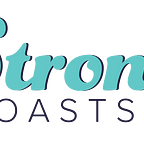Exploring the connections between resource insecurity and health and wellness: the way forward
By Yoel Gebrai
The 2020 Strong Coasts webinar series continued with another great webinar on October 13, 2020 by Dr. Cassandra Workman. Dr. Workman is a biocultural medical anthropologist and her presentation was titled “Understanding Complex Resource Insecurity: Interdisciplinary Approaches and Future Directions.”
Dr. Workman explored the connections and interactions between resource insecurity, health, and wellness. This type of research is highly interdisciplinary in nature and benefits from collaborations across different fields. Dr. Workman works internationally, and during this presentation she discussed projects that she worked on in Lesotho and a project that she is currently working on in Tanzania.
She first discussed the evolving definitions of food and water security. For instance, water security means more than having enough water for today, but also enough for the future as well. Additionally, the ties between water security and food security to social factors like power, gender, and class were also mentioned.
A recurring message throughout Dr. Workman’s talk was the need to look back to move forward in international development. Culture for example tends to be treated as an obstacle for behavior change to be implemented, when in fact culture provides context and should not be perceived as a barrier. Diseases and health are biocultural and shaped by their cultural contexts. Furthermore, the meaning people assign to technological interventions will define how people interact with it, and what type of risks people associate with it.
The research Dr. Workman conducted in Lesotho focused on the social effects of water and food insecurity as well as HIV risk. She performed this research in the area surrounding the capital of Lesotho. High rates of food insecurity and a decade long drought in Lesotho had preceded her arrival, and upon her arrival there was torrential flooding. The strong food-water linkages that lead to insecurity in water causing insecurity in food were evident. Dr. Workman created a household survey based on water availability, access, and quantity. The survey results showed that water was distressing, but the biggest stress people had was not having enough food. Vulnerable households were found to be less able to respond to shocks and water insecurity, food insecurity, and HIV were found to drive depression and anxiety. The results also highlighted the importance of perceived cleanliness and the stress caused by water insecurity.
Dr. Workman’s current research based in Morogoro, Tanzania explores human health and wellness. For this, Dr. Workman is developing a scale that measures the degree of food, water, and WASH insecurity in Morogoro, Tanzania. The concept of WASH security requires the separation of water use for hygiene and other activities and is more complicated than having an adequate latrine and water for hygiene. Environmental risks are taken into consideration when assessing WASH insecurity.
Some things that need to be considered going forward include the need to learn more from previous international development experiences. The notion that development goes on somewhere else and that those issues are not relevant to the US is incorrect. This needs to be addressed. Finally, addressing these complex issues in resource insecurity requires convergence from many disciplines.
The Q&A session was also fascinating with great questions met with great answers. This webinar can be viewed in the recording below and I am looking forward to the next Strong Coasts webinar!
About the author Yoel is pursuing a PhD in Civil Engineering with a concentration in Engineering for International Development. He has a BS in Petroleum Engineering from Louisiana State University and an MS in Hydrogeology from Clemson University. After graduating with his MS, he worked for an environmental consulting company as a groundwater modeler before coming to USF. At USF, his research interests are in sytems thinking, the food-water-energy nexus, water resource engineering and management, and sustainable development.
STRONG COASTS is supported by a National Science Foundation Collaborative Research Traineeship (NRT) award (#1735320) led by the University of South Florida (USF) and the University of the Virgin Islands (UVI) to develop a community-engaged training and research program in systems thinking to better manage complex and interconnected food, energy, and water systems in coastal locations. The views expressed here do not reflect the views of the National Science Foundation.
